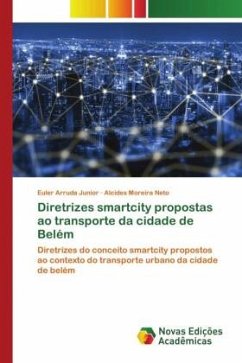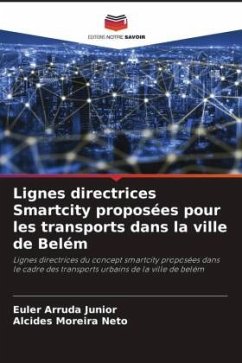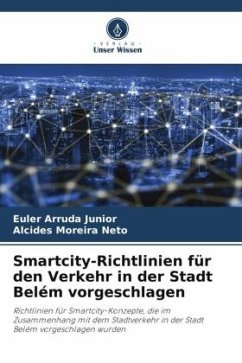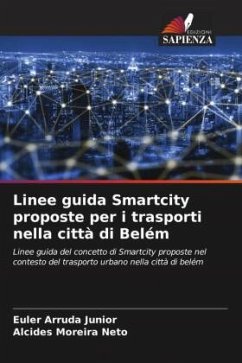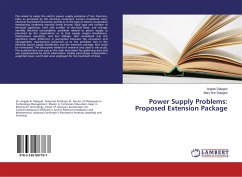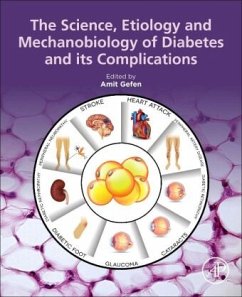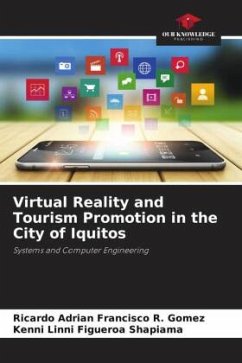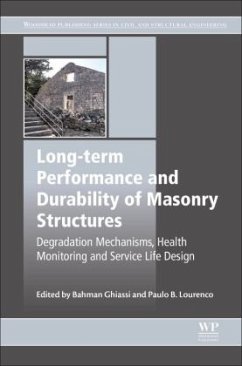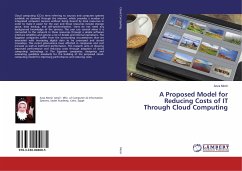
Smartcity guidelines proposed for transport in the city of Belém
Smartcity concept guidelines proposed in the context of urban transport in the city of belém
Versandkostenfrei!
Versandfertig in 6-10 Tagen
29,99 €
inkl. MwSt.

PAYBACK Punkte
15 °P sammeln!
This paper proposes to explore the SmartCity concept, proposing a transition path for the city of Belém, towards the smart city model in terms of urban transportation. To this end, the work was developed along the lines of a literature review with multiple case studies. Analyzing successful examples in the old European continent and in cities of the south and southeast regions of Brazil, the city of Belém shows several problems of urban mobility that can be solved following the concepts of the successes obtained in the aforementioned places, always remembering that one city will never behave...
This paper proposes to explore the SmartCity concept, proposing a transition path for the city of Belém, towards the smart city model in terms of urban transportation. To this end, the work was developed along the lines of a literature review with multiple case studies. Analyzing successful examples in the old European continent and in cities of the south and southeast regions of Brazil, the city of Belém shows several problems of urban mobility that can be solved following the concepts of the successes obtained in the aforementioned places, always remembering that one city will never behave the same as another due to a series of factors such as education, climate, relief that are different in each city. With the proposed applications the metropolitan region of Belém could enjoy a great improvement in urban mobility. It was suggested a better integration in land transportation with the improvement of bicycle circulation in certain regions of the city; an improvement in the circulation of people in certain commercial areas; and an integration in the Internet of Things, which would be the use of information applications for mobility.



